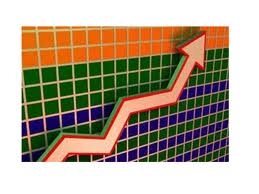Forecasts of experts on Vietnam’s GDP growth
Monday, October 21,2024
AsemconnectVietnam - In “Asian Economics Quarterly – Comin’ for a landing” report issued recently, HSBC has maintained its GDP growth forecast for Vietnam at 6.5% for both 2024 and 2025.
Actually Vietnam’s economic growth improved and surprised on the upside in the second quarter of 2024, rising 6.9% year-on-year. The recovery in the external sector has started to broaden out beyond consumer electronics, although the pass-through to lifting the domestic sector still remains to be seen.
The country’s manufacturing sector has emerged strongly from last year’s woes. Purchasing Managers' Indexes (PMIs) have registered five consecutive months of expansion, while industrial production (IP) has registered a bounce-back in activity for the textiles and footwear industry as well.
This has supported robust export growth at double digits, with structural forces, such as expanding market access for Vietnamese agricultural produce, also underway.
However, HSBC noted that the domestic sector is recovering more slowly than initially expected, with retail sales growth still below the pre-pandemic trend. Encouragingly, the government has put in place measures to support a wide range of domestic sectors that is expected to shore up confidence with time.
Environment tax cuts on fuel and value-added tax cuts for certain goods and services will last until year-end 2024, while the revised Land Law effective from August will buttress the outlook for real estate.
The bank showed its confidence that the potential upside risks can offset the temporary economic disruptions from Typhoon Yagi.
Regarding inflation, it said that price developments are turning more favourable in the second half of this year, as unfavourable base effects from energy have faded. An expected Fed easing cycle will also help to alleviate some exchange rate pressures.
“Taking all these into consideration, we maintain our inflation forecasts at 3.6% in 2024, well below the State Bank of Vietnam’s target ceiling of 4.5%. For 2025, we keep our inflation forecast at 3.0%,” according to the report.
Recently, the Asian Development Bank (ADB) maintained its positive economic outlook for Vietnam, forecasting the country’s GDP growth at 6% in 2024 and 6.2% in the following year.
Meanwhile, Singapore-based United Overseas Bank (UOB) revised forecast for the nation’s economic growth down to 5.9% for 2024 from the previous 6.0% due to the impact of Typhoon Yagi.
Vietnam needs to enhance economic resilience against disasters
According to an economist of the Asian Development Bank (ADB), Vietnam needs to strengthen the resilience of the Vietnamese economy against natural disasters given the devastating consequences of Typhoon Yagi, the strongest to hit Vietnam in decades, and its aftermath.
In an exclusive interview granted to the Vietnam News Agency (VNA), Nguyen Ba Hung, Principal Country Economist at ADB Vietnam, said initial estimates put the typhoon damage at 81.5 trillion VND (3.31 billion USD).
The final loss evaluation depends on the efficiency of recovery efforts, he said, noting as Vietnam is frequently hit by natural disasters, requiring enhanced resilience to deal with the aftermath and rebuilding.
Hung suggested that for the short run, State support for recovery and reconstruction should be stepped up, citing the government aid package worth 350 billion VND after the typhoon.
However, the reconstruction process should go beyond mere restoration, focusing on building and upgrading infrastructure to be more sustainable and resilient to future natural disasters, he said.
In the long term, Vietnam should adopt a systematic approach to establish resilience standards against natural disasters, such as creating design standards for civil and infrastructure projects, he said, adding for risks like floods, landslides, and storms, such design standards will serve as a foundation for rebuilding with greater resilience to similar disasters in the future.
The economist also suggested more attention to the insurance market, particularly specialised products for disaster risk management, and explained that insurance for assets, including public assets and crops, will help people and businesses quickly recover after natural disasters.
Asked about the US Federal Reserve (Fed)’s lowering interest rates by 50 basis points on September 19, Hung said its direct impact on the Vietnamese economy is minimal. However, the economy still faces the broader challenge of weakening import demand of developed countries as exports alone make up about 80% of Vietnam’s gross domestic product (GDP).
From the monetary policy perspective, the trend of lowering interest rates will help narrow the gap in this regard. Macroeconomically, this will ease pressure on the exchange rate between the Vietnamese dong and the US dollar, presenting an advantage for Vietnam, he noted.
Hung pointed to the weak credit demand as the economic slowdown has led to reduced capital needs among businesses. Therefore, he said, further interest rate cuts are unlikely to be effective.
Given this, Vietnam needs effective demand stimulation policies, he went on, adding once domestic demand is boosted, businesses will see opportunities for production and growth, thus seeking to access loans for expansion.
CK
Source: VITIC/vietnamplus.vn
Vietnam's rice import increase sharply in 9 months
Vietnam - Greece trade exchange in September and 9 months of 2024
Vietnam's trade surplus in the first 9 months of 2024
Vietnam imports 7.8 billion USD of goods from Thailand
Vietnam's seafood exports in 9 months and forecast for 2024
Exports of goods to Japan and South Korea in September and first 9 months of 2024
Vietnam spent over 100 billion USD to import Chinese goods in 9 months
Regulations on temporary suspension of transit business, temporary imports of plywood into Vietnam for re-export to US issued
Vietnam's shrimp exports to China recover
List of markets where Vietnam imports goods with a turnover of 10 billion USD
6 leading import markets of Vietnam
Retail sales of goods and consumer service revenue increased by 8.8%
Vietnam is the 3rd largest supplier of imported seafood to China
Vietnam's GDP in 3rd quarter and 2024 forecast


